Search Images
Browse Content (p. 1733)
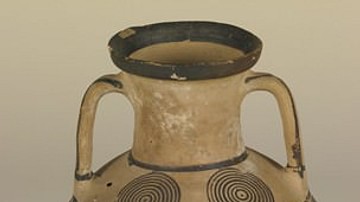
Image
Proto-geometric Amphora
The Proto-geometric style (1000-900 BCE) of Greek pottery decoration was a forerunner of the full Geometric style. This amphora dates from the first half of the 10th century BCE and displays the popular circle design. These were achieved...
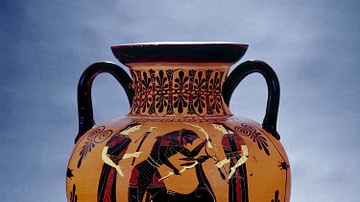
Image
Attic Black-figure Amphora
An Attic black-figure neck-amphora (540-530 BCE) depicting Hercules wearing his lion skin and engaged in one of his celebrated 12 labours. The hero wrestles the hind of Keryneia and is breaking off one of its golden horns. On the left stands...
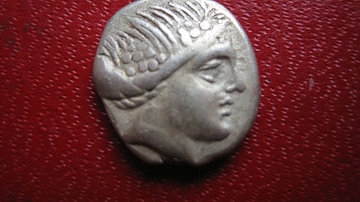
Image
Silver Tetrobol
Greek silver tetrobol of the Eubola League. The obverse has the image of Eubola and the reverse has the nymph Histiaia on a ship's prow. Circa 195 to 146 BCE.
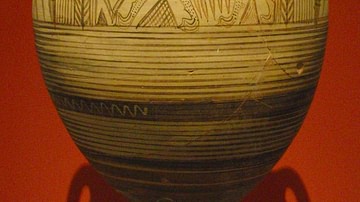
Image
Boeotian Pithos from Thebes
A Boeotian early orientalizing pithos-amphora depicting a lion, 670-660 BCE, Thebes. (National Archaeological Museum, Athens).

Image
Abu Simbel Panorama
Abu Simbel is a temple complex, originally cut into a solid rock cliff in southern Egypt at the second cataract of the Nile River. The two temples that comprise the site (The Great Temple and The Small Temple) were created during the reign...
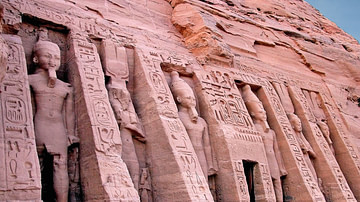
Image
The Small Temple, Abu Simbel
The Small Temple at Abu Simbel was dedicated to Hathor and Queen Nefertari, stands at a height of 40 feet (12 metres) and is 92 feet (28 metres) long. The temple is adorned with colossi across the front facade, three on either side of the...

Image
Ramesses II at The Battle of Kadesh
In 1274 BCE, Ramesses II (The Great) of Egypt led his forces against the Hittite army, under King Muwatalli II, at The Battle of Kadesh. Both sides claimed victory and the conflict resulted in the world's first peace treaty, The Treaty of...
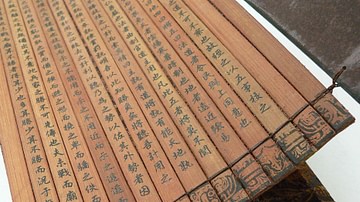
Image
The Art of War by Sun-Tzu
A bamboo version of 'The Art of War' (composed late 6th century BCE) widely attributed to the Chinese military strategist Sun-Tzu. (University of California, Riverside)
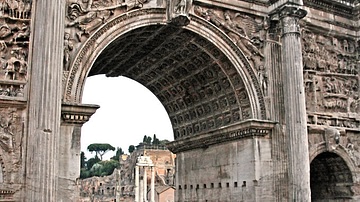
Image
Arch of Septimius Severus
The Arch of Septimius Severus in Rome was built in 203 CE and was dedicated by the Senate and the People of Rome (S.P.Q.R.) to both Septemius Severus and his son Caracalla in honour of their victories against the Parthians, relief scenes...
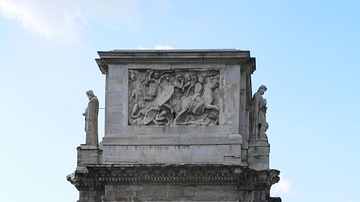
Image
Side View, Arch of Constantine
The Arch of Constantine in Rome, built in c. 315 CE to commemorate the Roman emperor's victory over Maxentius in 312 CE. It is the largest surviving example of a Roman Triumphal Arch.